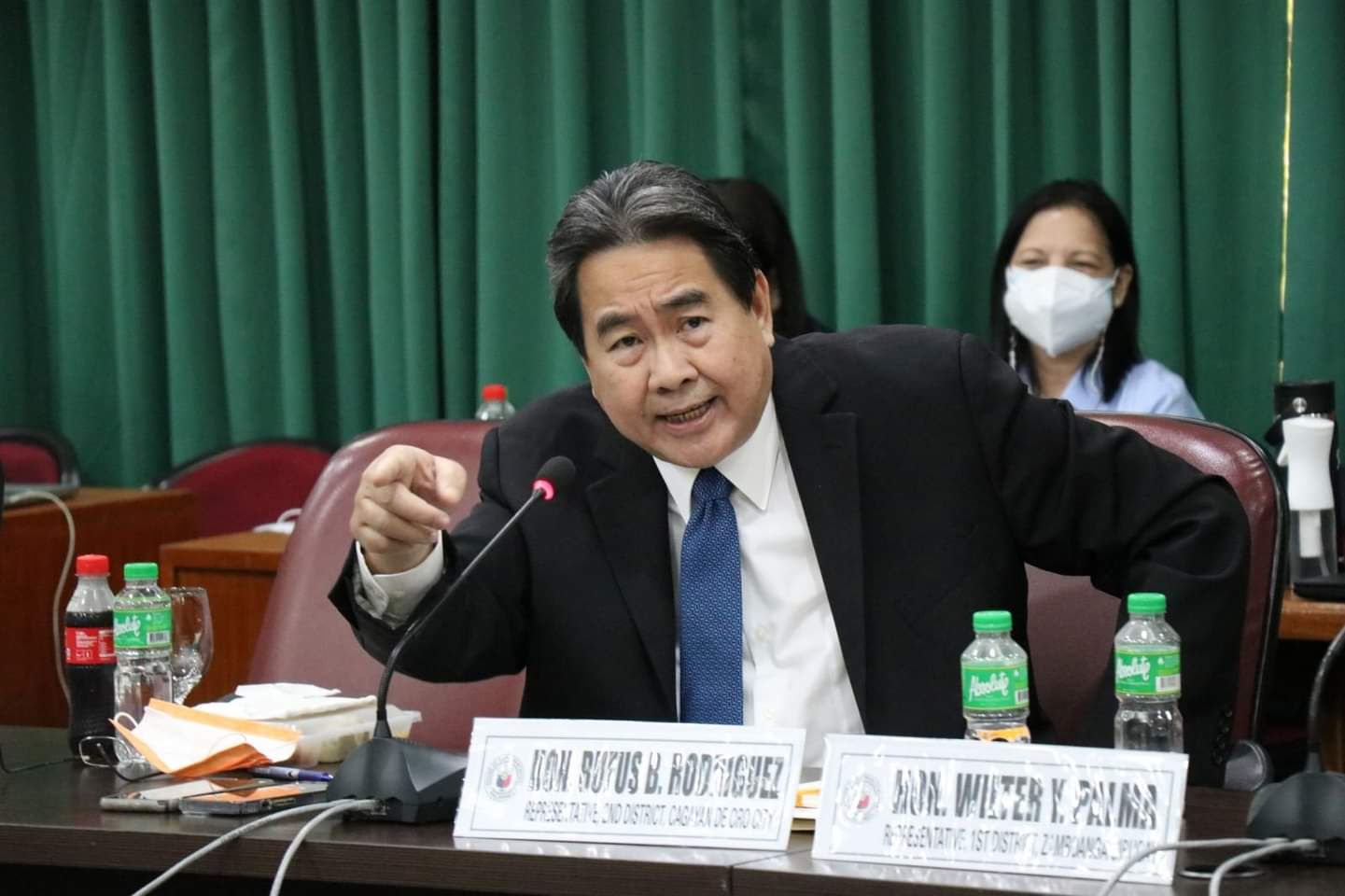Rodriguez welcomes suspension of stricter travel rules, but insists they should be scrapped
At A Glance
- Cagayan de Oro City 2nd district Rep. Rufus Rodriguez hailed the Department of Justice (DOJ) for postponing the imposition of additional requirements on Filipinos, including overseas Filipino workers (OFWs), going abroad.

Cagayan de Oro City 2nd district Rep. Rufus Rodriguez (Facebook)
Cagayan de Oro City 2nd district Rep. Rufus Rodriguez hailed the Department of Justice (DOJ) for postponing the imposition of additional requirements on Filipinos, including overseas Filipino workers (OFWs), going abroad.
However, Rodriguez said the better recourse would be to scrap the proposed stricter travel rules altogether, instead of just delaying their enforcement.
“I am sure [DOJ] Secretary [Jesus Crispin 'Boying' Remulla, who is a good lawyer, knows the implications of the additional regulations on the right to travel and the right to privacy,” he said in a statement Friday, Sept. 1.
It was Rodriguez, who served as Bureau of Immigration (BI) commissioner during the Estrada administration, who first voiced opposition to the imposition of additional travel documents and giving immigration officers wider discretion to determine the qualification and purpose of a departing passenger.
The new rules--proposed by the Inter-Agency Council Against Trafficking (IACAT)--were supposed to be imposed on Sept. 3. The DOJ heads IACAT.
“Those are unreasonable rules. They will give Filipino tourists, overseas Filipino workers and other travelers a lot of inconvenience, and they could make them vulnerable to harassment and extortion by corrupt immigration officers and other airport personnel,” the Mindanao solon said in a statement last Aug. 25.
He said the IACAT was allowing immigration officers to exercise “subjective judgment, whims and discretion” on departing passengers.
“I am afraid that’s where extortion, harassment and corruption will arise,” he said.
Regarding the DOJ's postponement of the stricter travel rules, Rodriguez said: “The decision protects our citizens’ right to travel, which is guaranteed by the Constitution, and their right to privacy, which is safeguarded under the Data Privacy Act."
Among the additional requirements was proof of financial capacity or source of income. Rodriguez said this particular imposition would have violated a passenger’s right to privacy.